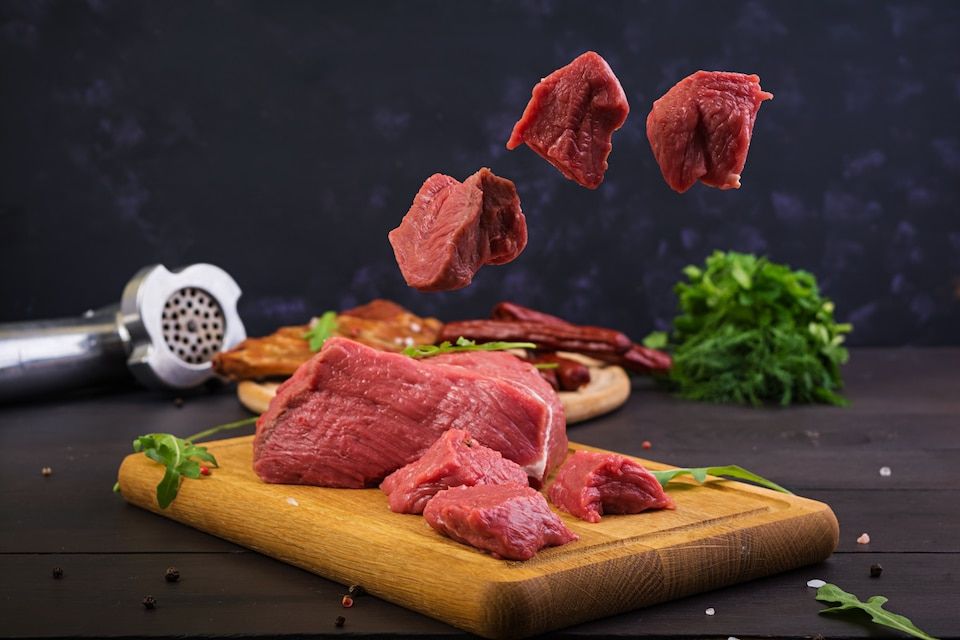 27 Jul 2023
27 Jul 2023
Plant-based meat is used to describe food that is designed to mimic or imitate animal meat products. These products are healthy, vegetarian, and tasty. Although products like seitan and tofu were used earlier to replace animal meat, today, newer products are available that mimic its appearance, taste, and texture. As the name goes, plant-based meat is produced from plants. So, manufacturers do not rely on animals but on plants to make plant-based meat. Like animal-based products, plant-based meat consists of fat, minerals, protein, water, and vitamins. It’s made to look and taste like meat.
Many thoughtful people in India are beginning to worry about how much meat they eat. In many countries where vegetarians were once regarded as oddballs, restaurants are making a conscious attempt to cater to them. But as the doubts about a mostly meat-based diet grow, important questions are beginning to be asked about how much damage the production of meat actually does to the planet and how exactly it does this damage. Nor is it clear if every new bright and shining trend that has been launched by the “eat-more-plants” campaign is here to stay.

Take plant-based “meat,” for instance. Around five years ago, it was being talked about as the next big thing. Companies that produced plant-based ‘meat’ saw huge interest from investors and share prices zoomed. Burger King (in the US) put a plant-based burger on the menu and its sales soared. The day is not far off, we were told when the planet will be saved and public health will improve because we will all switch to plant-based ‘meat’ from the real thing.
Agricultural and Processed Food Products Export Development Authority (APEDA) has announced that GREENEST, a leading plant protein food brand, has shipped India’s first plant-based meat export consignment to the USA from Gujarat. The 5,000 Kg consignment consists of plant-based mini samosas, hot and spicy strips, momos, spring rolls, nuggets, grilled patty, and other vegan products.
Beyond Meat, the company that pioneered the production of plant-based burgers and the like reported disappointing first-quarter results. It declared a net loss of 100 million dollars and a significant drop in total revenue. Figures for the sector as a whole show that it is not growing as much as expected. And it looks as though plant-based ‘meat’ has had very little impact on US meat consumption. All the current evidence suggests that we may have overestimated the appeal of plant-based ‘meat’. The figures suggest that it has either held steady or actually gone up.
On the other hand, the environmental objection to meat has more substance. Cows and other ruminant animals release enough methane to contribute to global pollution almost as much as a car does. The impact can be overstated (ruminants contribute only three percent of the UK’s total greenhouse gas emissions), but it is undeniable. There is, therefore, a strong argument for restricting the rearing of livestock.
Except that, even this has little to do with vegetarians or plant-based foods. In nearly every country (and certainly in India) where cows are reared, the majority are farmed for milk, not for beef.
More indirectly but also importantly, rising beef production requires increasing quantities of land. New pastureland is often created by cutting down trees, which releases carbon dioxide stored in forests and thus adds to global pollution.
Despite seeming contradictory, all these things are true. That’s what makes the beef and sustainability discussion so complicated - and so contentious.
So, if you want to reduce methane emissions, a more effective way of doing this would be to remove milk, dahi, paneer, cheese, ice cream, lassi, mithais, and the like from your diet. This will be more effective than eating a fake meat hamburger.
In India, plant-based meat is still an elite concern. But the lesson we should take away from all of this research is: be careful how many processed foods you use. The chemicals that are needed to put them on your grocery shelves may harm your heart much more than a seekh kebab.
Read More: The Day & Age Of The Modern Cloud Kitchen
Read More: Food Sustainability - The Need Of The Hour!